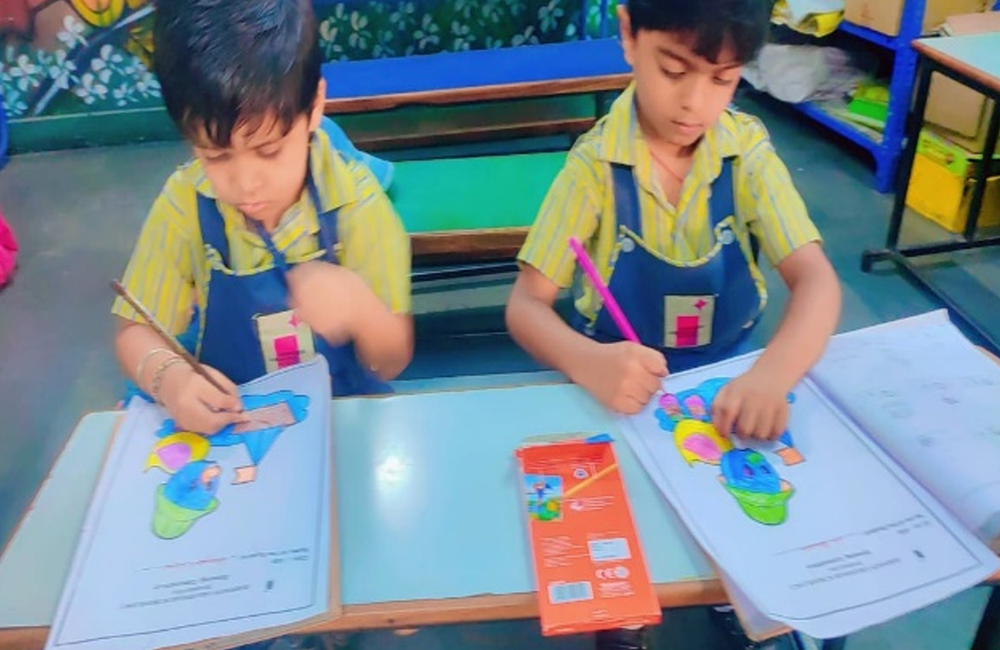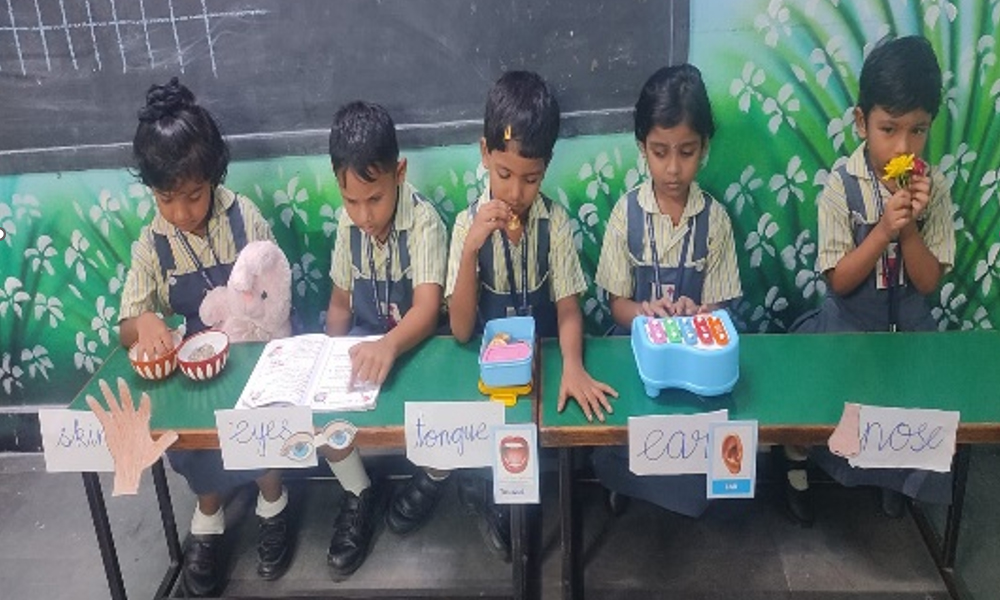

Pre-primary education is the foundation of a child’s academic journey, focusing on holistic development through interactive and play-based learning. The curriculum is designed to nurture cognitive, social, emotional, and physical growth while making learning a fun and engaging experience.
The pre-primary academic structure follows a child-centric, activity-based learning approach. It incorporates:
Play-way Method: Learning through storytelling, role-play, games, and interactive activities.
Experiential Learning: Hands-on experiences like sensory play, art and craft, and nature exploration to enhance understanding.
Montessori & Kindergarten Methods: Focus on self-directed learning, social interaction, and practical life skills.


Fine Motor Skills: Activities like clay modeling, bead stringing, and paper folding help improve hand-eye coordination.
Gross Motor Skills: Running, jumping, balancing, and other physical exercises enhance physical strength and coordination.
Teaching manners, sharing, and cooperation through group activities.
Encouraging self-expression, confidence, and independence.
Storytelling and puppet shows to teach moral values and empathy.

Pre-primary education, assessments are conducted through:
Term exams will be conducted and the First term will be in the month of December and the second term exam will be conducted in April.
Along with the Assessments, students will be assessed by Continuous observation of participation in activities.
Developmental checklists for skills like communication, creativity, and social behavior.
Portfolio-based assessments including artwork, worksheets, and classroom participation records.

Lays the groundwork for cognitive and academic development.
Encourages curiosity, imagination, and social interaction.
Builds a strong foundation for formal schooling with basic literacy and numeracy skills.
Develops self-confidence, discipline, and enthusiasm for learning.
By making learning enjoyable and engaging, pre-primary academics ensure that children transition smoothly into primary education with a positive attitude toward school and learning.

Child care involves providing a safe, nurturing, and stimulating environment for young children to ensure their physical, emotional, cognitive, and social development.
Proper child care includes nutrition, hygiene, safety, emotional support, education, and physical activity.
A well-balanced diet is crucial for pre-primary students (ages 3-6) as it supports their rapid growth, brain development, and overall well-being. Proper nutrition enhances their physical strength, cognitive abilities, immunity, and emotional stability.

Days |
Mid morning snacks |
Lunch |
|---|---|---|
| Monday | Idli/ Dosa/ Any Fruit | Rice/ Roti with dal, leafy vegetable, Curd, Boiled egg* |
| Tuesday | Upma/ Poha/ Any Fruit | Rice/ Roti with any vegetable curry and Curd, Boiled egg* |
| Wednesday | Chapathi/ Puri/ Any Fruit | Rice/ Roti with veggies and Curd, Boiled egg* |
| Thursday | Sandwich/ Bread and Omelette/ Any Fruit | Rice/ Roti with dal, leafy vegetable/Curd, Boiled egg* |
| Friday | Dry Fruits/ Sprouts | Rice/ Roti with any veggies and Curd, Boiled egg* |
| Saturday | Dry Fruits/ Sprouts | A Bowl of mixed fruits/ home made snacks |
